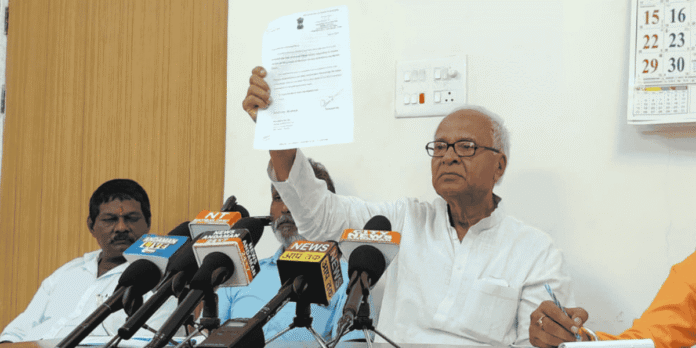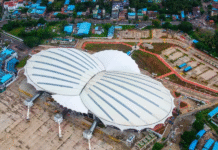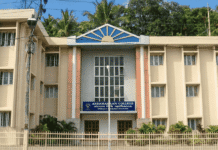In an unusually direct and confrontational address, Lok Sabha MP Bishnu Pada Ray has accused sections of the Bharatiya Janata Party’s local leadership of neglecting their responsibility to speak up on island-specific issues, warning that the party’s political influence in the Andaman & Nicobar Islands is in decline due to silence and inaction.
Speaking at a recent party meeting, Ray reminded members that the BJP constitution empowers unit, block, district, municipal, and state committees to correspond directly with higher authorities, including the Prime Minister, to raise grievances. He alleged that few leaders were exercising this right, with some opting instead to protect personal business interests over public causes.
Citing his own record of taking island matters directly to Prime Minister Narendra Modi, Home Minister Amit Shah, and other central leaders, Ray criticised what he described as a culture of post-election quiet, where leaders avoid challenging the administration to maintain cordial relations. “We once controlled entire panchayats, but people have moved to Congress because we stopped protesting and speaking up,” he said.
Ray highlighted persistent shortages of water, electricity, and development funds, as well as the absence of key infrastructure projects in South Andaman. He pointed to the ₹163 crore municipal budget as inadequate for the territory’s needs, saying it falls short of delivering road and drainage works that residents have long demanded.
The MP also warned that failure to publicly confront these shortcomings could damage the party’s credibility in the run-up to future elections. “No funds, no power, no water, and no one speaks up. The party’s future in the islands could be very bad,” he cautioned.
The speech comes amid changes in the party’s state leadership, with Anil Tiwari recently appointed as the BJP’s state president. Initially believed to have Ray’s support, the appointment has since become a flashpoint, with reported disagreements over key organisational posts. Sources say Tiwari favoured certain candidates for senior roles that Ray did not approve, deepening internal fault lines.
Ray’s remarks underscored his belief that active protest, regular planning meetings, and formal correspondence with central authorities are essential for political relevance. He urged the local unit to abandon its passive approach and return to grassroots mobilisation to rebuild public trust.
While insisting he maintains good relations with the BJP’s central leadership, Ray expressed concern over what he described as the erosion of the party’s image in South Andaman. The combination of internal rifts and perceived inaction, he suggested, risks ceding political ground to rivals.
The unusually candid nature of his speech has exposed a widening rift within the BJP’s island unit. Political observers say the tension between the sitting MP and the newly appointed state president could undermine organisational stability at a critical time.
With the party facing increasing competition from opposition forces and public frustration over unresolved local issues, the internal discord now spilling into public view adds another layer of uncertainty ahead of upcoming polls. Ray’s call for a return to assertive advocacy may test whether the island unit can realign itself with the expectations of its grassroots base, or risk further decline in its political stronghold.





